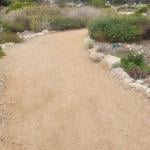In his classic essay on the “Reasonableness of Typology,” GWH Lampe argued that critical scholarship reintroduced history into biblical interpretation: “In place of the unhistorical attitude which saw the Bible as a vast harmonious complex of prophecy and fulfillment, type and antitype, allegorical picture and spiritual reality, fused together by the unfirm inspiration of the Holy Spirit, Biblical criticism sought to recover the true and original meaning of the literal sense, and to set the various documents comprising the Bible... Read more



















